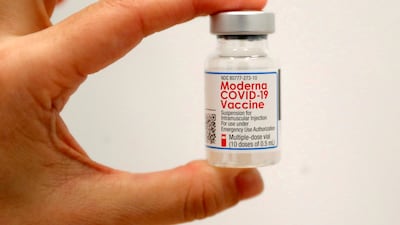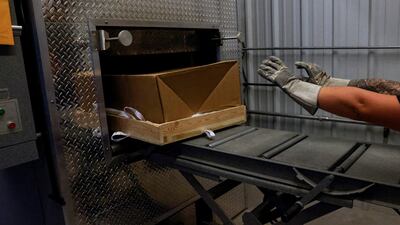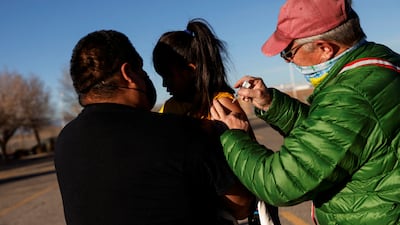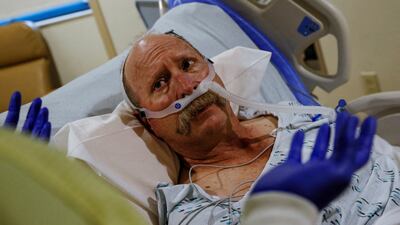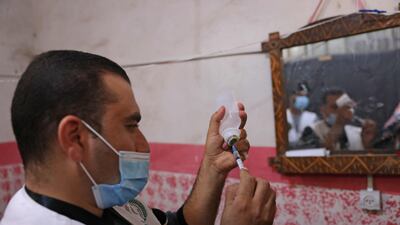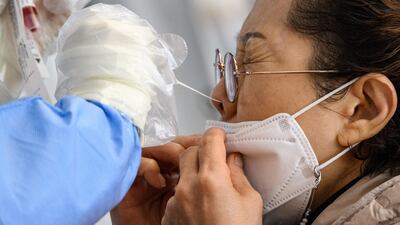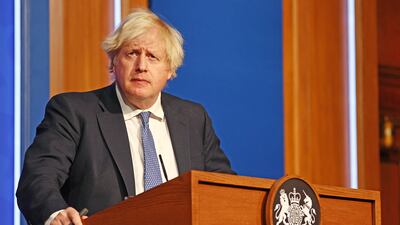Live updates: follow the latest news on Covid-19 variant Omicron
It has been two years since Covid-19 emerged in China. Since then, the world has faced upheaval of a kind that most people had never experienced before.
Travel bans, hospitals struggling to cope, boosters and mask-wearing – life has taken on myriad new elements, many of them unwelcome. But the effects of the virus have not been felt equally around the world.
Some regions have suffered higher death rates, in part because they have more elderly people, and levels of infection have varied widely. Although vaccine campaigns improved significantly in many developing nations in the second half of 2001 , and some countries are pressing ahead with boosters, coverage in Africa remains poor.
London School of Hygiene and Tropical Medicine
Looking ahead to next year, the hope is that supply shortages will ease now that manufacturing capacity is stronger and initial campaigns have been carried out.
“The bottom line is more vaccines need to reach more people, and we’re now in a much better position than we were a year ago because the vaccine supplies have significantly increased,” said Prof Beate Kampmann, director of the vaccine centre at the London School of Hygiene and Tropical Medicine.
“Supplies appear to be less of an issue now, but it’s the distribution of the supplies that is not resolved.
“There might also be a shortage in adjusted product [to cope with new variants] and there will have to be continued advocacy and commitment for countries to donate.”
The emergence of the Omicron variant increases uncertainty as to what will happen next year.
“People have postulated that until 2023, it isn’t achievable to vaccinate the world,” Prof Kampmann said.
“If we’re having new variants kicked out and vaccines having to be tweaked, then I worry that this will set back the whole trajectory of progress.”
Africa
Africa is by far the least vaccinated continent, with only 18 doses administered per 100 people and 12 per cent of the population having received at least one dose of vaccine.
Africa has recorded 225,000 deaths from Covid-19, according to official figures. But this is likely to be an underestimate. Vaccine supplies from Covax, the global vaccine alliance, have fallen below expectations, but increased in the second half of this year.
The continent has been able to use existing infrastructure for delivering childhood vaccinations to administer Covid-19 vaccines.
Prof Kampmann said vaccine hesitancy has been a concern, however, partly because the continent already has a high burden from infectious disease, so Covid-19 is seen as “one other virus coming along”.
“I don’t think people are quite as aware of the threat to their personal health posed by Sars-CoV-2, and they therefore don’t see the need to be vaccinated,” she said.
Vaccine supply is expected to increase significantly next year as squeezes on production capacity brought about by the initial launch of campaigns in many parts of the world lessen.
Asia-Pacific
China, which has recorded fewer than 6,000 deaths among its 1.4 billion people, according to official figures, has controlled the pandemic through international travel restrictions and local lockdowns.
The population is heavily vaccinated (83 per cent are fully immunised), although with locally developed vaccines that may be less effective, especially against newer variants.
Some analysts think the world’s most populous nation will continue with its eradication or elimination strategy until the middle or even the end of 2022, easing restrictions only when more people have received newer vaccines.
Many countries in South-East Asia, such as Laos, Malaysia, Cambodia and Thailand, began administering vaccines in earnest only in the second half of this year, but now have significant coverage.
They will be aiming to achieve more consistent openings of their economies – and their tourism industries – in the year ahead.
India has administered about 1.32 billion vaccine doses but, because of its population size, only 38 per cent of citizens are fully vaccinated.
The world’s biggest vaccine producer is likely to complete its first round of inoculations in 2022, but keeping the pandemic under control – as the country has done following its devastating spike from April to June – may depend upon the behaviour of Omicron.
With their populations heavily vaccinated and with the Delta variant making a continued elimination strategy unrealistic, Australia and New Zealand are likely to open their borders to more people next year.
There have already been announcements about international students returning to Australia.
Europe
Europe is home to less than 10 per cent of the world’s population, but has suffered more than a quarter of known fatalities from Covid-19 – 1.54 million deaths – partly because of high infection rates and a large elderly population.
A study released in November said the continent could suffer a further 300,000 deaths if measures to control the virus were lifted.
Many European countries moved rapidly to vaccinate their populations, but high levels of vaccine scepticism in some places have placed an upper limit on coverage.
Recent severe outbreaks in nations including Belgium, Germany and the Netherlands have shown the pandemic’s potential to flare up again.
The UK, which was among the earliest to administer the first vaccines, and which has suffered a particularly high rate of infections and deaths, has had “very high, stable rates” in recent months, says Dr Andrew Freedman, an infectious disease specialist at Cardiff University in Wales.
High rates of vaccination and previous infection are thought by some analysts to be preventing further growth in the number of cases in the UK, although case rates remain high, averaging more than 40,000 a day.
Dr Freedman suggests more parts of Europe could see the same pattern next year.
“Once it peaks it may well do something similar to the UK,” he said, although this was conditional on new variants not changing the dynamic.
Recent modelling of how the Omicron variant might affect the UK suggested it could cause between 25,000 and 75,000 deaths by the end of April.
The Americas
After suffering a devastating toll of more than 600,000 deaths, Brazil has brought infection and death rates down significantly, as have some of its neighbours, including Argentina.
Latin American nations, including Brazil, Argentina, Uruguay and Ecuador, are now in the upper reaches of the global league tables of vaccination rates.
About 70 per cent of people in Latin America have now had at least one vaccine dose, putting the region behind only the US and Canada, where the figure is 73 per cent. The outlook for 2022 appears significantly improved over that of this year.
Cuba, which has well-developed healthcare and research institutions, stands out for producing its own vaccines. These have helped the country to fully immunise more than four out of every five people and give at least one dose to 90 per cent of its population.
“Cuba has three vaccines that seem to be working,” said Prof John Oxford, emeritus professor of virology at Queen Mary University of London.
While the US and Canada, together, represent the most vaccinated region of the world, the picture in the US is variable because of high rates of vaccine scepticism in some states.
For the past two months, the country has recorded between 5,000 and 11,000 deaths per week and a significant number could continue to occur next year, owing to inconsistent vaccination rates and new variants.
Middle East
The region has the country that was the fastest to get going with vaccination, Israel, and the country in which the highest proportion of its population has had at least one shot, the UAE.
Israel will offer lessons for the world next year in the effectiveness of boosters. The country has already administered them to about 46 per cent of its citizens, one of the highest figures in the world.
With high vaccination rates, Israel and the Gulf states will be able to keep economic disruption caused by the pandemic to a minimum in 2022, subject to the Omicron variant not forcing them to reinstate lockdowns.
While many of the Middle East’s nations are heavily vaccinated, when taken as a whole only 49 per cent of the population has had at least one dose. This is the second-lowest figure for any world region, ahead only of Africa.
War and poor healthcare infrastructure have slowed campaigns in Syria, Lebanon, Yemen and Iraq.
In Syria, only 5.2 per cent of the population has had at least one dose, while in Yemen the figure is only 1.9 per cent.
Next year, continued civil war could heavily complicate vaccination programmes in these two nations.

